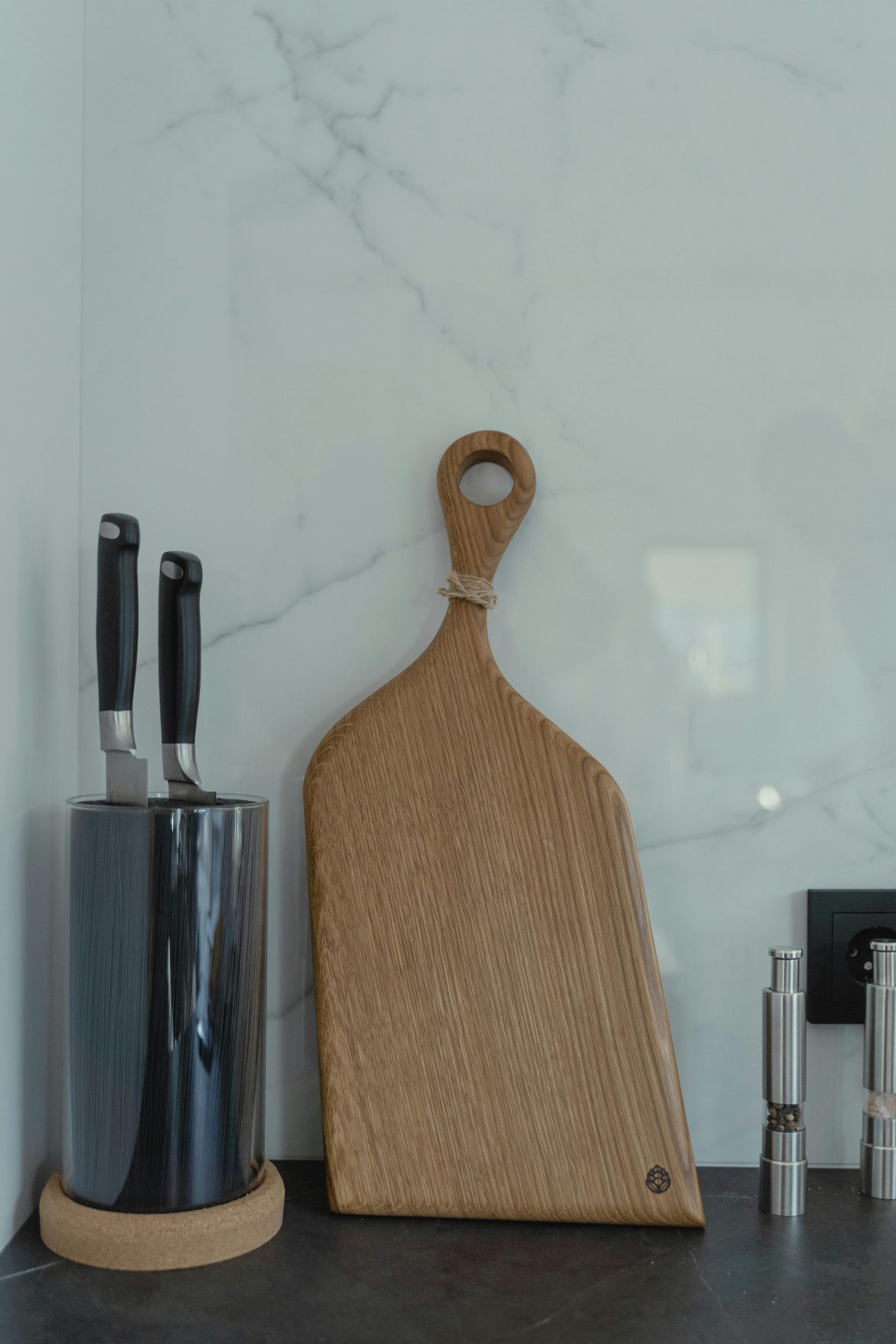Almost every kitchen has a knife block. It’s a popular tool to keep a home cook’s knives safe and secure, not to mention a conventional way to store a growing collection. Whether it’s made from wood, bamboo, or plastic, knife blocks need regular cleaning to keep the buildup of grease, grime, bacteria and food bits at bay. Discover how to keep your knife block in tip-top shape with our deep-cleaning guide.
How often should you be cleaning your knife block
Ideally, you should give your knife block a proper clean at least once a month to prevent buildup (that can cause dangerous cross-contamination). If you store knives straight after a wash (i.e. they’re slightly damp still), then you should aim to clean the knife block once a week or bi-weekly.
How to deep clean a knife block
- Empty the knife block: Remove all knives and set them aside on a kitchen towel.
- Remove any debris: A thin vacuum nozzle works wonders to suck up any food bits and dust inside the slots. Otherwise, a good shake with the knife block upside down will also do the trick.
- Wash the exterior: Use a damp microfiber cloth and mild dish soap to wipe the outer surface.
- Clean the slots: Mix a solution of warm water and a few drops of dish soap. Use a pipe cleaner or thin bottle brush to tackle the slots. Dip the brush into the solution and scrub each slot thoroughly.
- Disinfect the slots: Once clean, dip a clean bottle brush into a disinfecting solution (you can make your own by mixing equal parts vinegar and water) and scrub thoroughly. You can even disinfect the exterior of the block, too.
- Dry the slots: Use a dry microfibre cloth to wipe the slots, removing any excess soap or disinfectant solution.
- Air dry: Leave the knife block to air dry completely before reinserting the knives to prevent mould growth.
Tips to keep your knife block cleaner for longer
Maintaining a clean knife block is far easier than cleaning it often. Here are a few tips you can use to help keep your deep-cleaned knife block cleaner for longer:
- Only store clean, dry knives. Damp or dirty knives encourage mould and bacterial growth inside the slots.
- Use a mild dish soap to effectively remove grease and grime buildup. Harsher chemicals may scratch and weaken the surface over time.
- Disinfect it regularly to avoid mould and bacterial growth.
- Never soak or dishwash your knife block. Exposure to water and extreme heat for long periods of time will damage the material, causing it to warp and crack.

